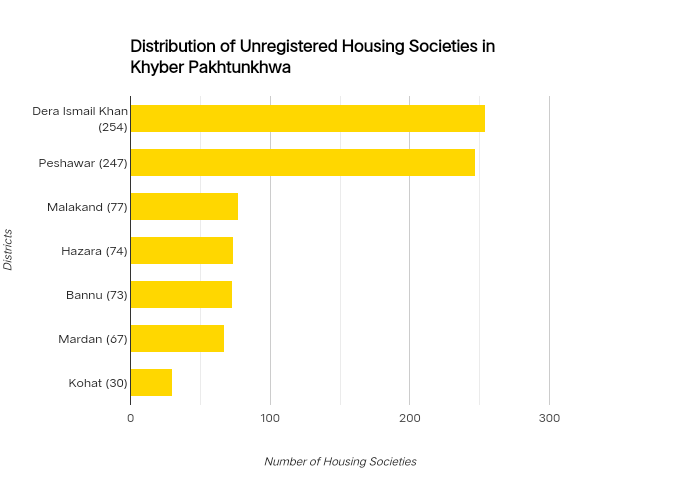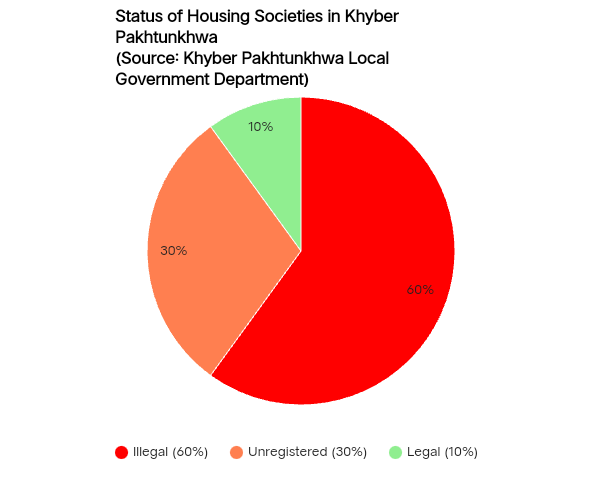PESHAWAR – In the quiet mornings of Khyber Pakhtunkhwa’s rural heartlands, the smell of damp earth and the sight of farmers tending to their crops has been a constant for generations. But in recent years, the landscape has begun to change. Farmlands that once stretched across the province are now disappearing under cement, bricks, and mortar as cities sprawl out of control. Farmers who have spent their lives working these fields are watching their livelihoods vanish, and with it, the province’s food security is at risk.
The story of Khyber Pakhtunkhwa’s farmland is not just about numbers, policies, and housing developments. It’s about the people whose lives are intertwined with the land. For many, agriculture isn’t just a job; it’s their identity, passed down from their forefathers, a symbol of stability in an increasingly unstable world.
A Threat Unfolding in Plain Sight
Liaqat Yousafzai, a 52-year-old farmer from Swabi, has spent his entire life on the land his family has cultivated for generations. His father, and his father before him, worked these same fields, nurturing crops that fed their community. But today, Liaqat’s once-thriving fields lie in the shadow of half-finished housing societies, their skeletal frames a reminder of the development rapidly encroaching upon his world.“Look at this land,” Liaqat says, his weathered hand sweeping over what remains of his fields.”it used to be full of crops. Now, I hear the sound of construction more than the sound of the wind through the trees.”

Liaqat’s story is not unique. Across Khyber Pakhtunkhwa, farmers like him are witnessing the slow erasure of their agricultural lands as unregulated housing societies multiply. According to a recent report from the Khyber Pakhtunkhwa Local Government (LG) Department, more than 90% of the province’s housing societies are either illegal or unregistered. In districts like Dera Ismail Khan and Peshawar, sprawling housing developments have swallowed vast tracts of fertile land.“The fast-paced growth of these societies is having far-reaching effects on our livelihoods,” Liaqat explains.“I understand people need homes, but where will we grow our food?”

A Government Struggling to Keep Pace
The problem is bigger than just Liaqat’s fields. The unchecked spread of cities across Khyber Pakhtunkhwa has created a cascading set of problems—environmental, social, and economic. While the local government has acknowledged the crisis, their efforts to regulate housing development are only just beginning to take shape. Dr. Israr Ullah Khan, Secretary of Agriculture for Khyber Pakhtunkhwa, has been vocal about the urgent need to rethink land use in the province. For Dr. Khan, the solution lies in changing public perceptions. “We need to move away from this mindset that views agricultural land as disposable,” he says.“The solution is vertical construction—building upwards, not outwards.”
But changing minds is easier said than done. Khyber Pakhtunkhwa’s cities are growing fast, and with them, the demand for housing. The pressure to accommodate an expanding population has led to a surge in unauthorized housing societies, often at the expense of agricultural land.The provincial government has announced a crackdown on illegal housing schemes, publishing lists of illegal and unregistered developments in local newspapers and warning the public not to engage in financial transactions with these projects. But as of now, the destruction of farmland continues unabated.
Saving the Land, Saving Livelihoods
Beyond the government’s efforts to rein in illegal construction, the Agriculture Department has embarked on a mission to save what remains of Khyber Pakhtunkhwa’s fertile land. Deputy Director of the Agriculture Department, Shah Fahad Yousafzai, believes that modern agricultural practices hold the key to protecting the province’s food supply. “We are working on adopting the latest technologies, like high-yield seeds and efficient irrigation systems, to boost productivity on the land we still have,” he says.In addition, the provincial government has launched an ambitious plan to build small dams in eleven districts, from Bannu to Swat. These dams are expected to bring over 71,000 acres of previously barren land under cultivation.“This is about more than just growing crops,” Shah Fahad says. “This is about securing our future.”But as plans for these small dams take shape, the question remains: will it be enough? The scale of the challenge is enormous. The province’s population is growing rapidly, and climate change is making farming even more difficult. “It’s a race against time,” Shah Fahad admits. “But we are committed to doing everything we can to protect our land.”
A Clash of Needs: Homes or Farms?
For many residents of Khyber Pakhtunkhwa, the struggle between urbanization and agriculture is personal. The need for housing is undeniable, especially as families grow and people move from rural areas to cities in search of better opportunities. But for the farmers who remain on the land, the price of this development feels too high.“We understand the need for more homes,” says Liaqat Yousafzai, “but why are they building them on the best farmland? There is so much barren land around us—why not build there?”It’s a question that many in the province are asking, and one that experts believe can only be answered through a comprehensive, long-term strategy that balances the needs of both urban and rural communities.Liaqat, for his part, is hopeful that the government’s efforts will bear fruit, but he knows that time is running out. “If we don’t act soon, we won’t have any farmland left,” he says. “And then what? Where will our food come from?”
A Collective Effort
What is clear from the growing challenges in Khyber Pakhtunkhwa is that no single solution will be enough to address the crisis. Dr. Khan believes that the key to saving the province’s farmland lies in collaboration. “This isn’t just about farmers or developers,” he says. “This is about everyone—government, civil society, businesses, and the public—coming together to find solutions that benefit us all.”For now, the Agriculture Department’s awareness campaigns are attempting to shift public opinion, encouraging citizens to think more critically about how land is used. And while some progress is being made, the path forward remains uncertain.In the meantime, farmers like Liaqat Yousafzai continue to watch as their land disappears, one housing development at a time.
“This land has fed my family for generations,” he says, his voice quiet.“I don’t want to be the generation that sees it all lost.”As Khyber Pakhtunkhwa’s cities continue to grow, the battle to protect its farmland becomes ever more urgent. It is a fight not just for the land, but for the future of the province and the people who call it home.The question remains: will the province be able to strike a balance before it’s too late?












